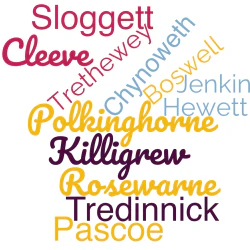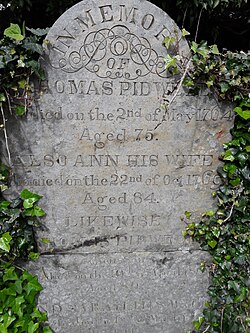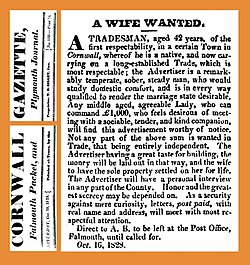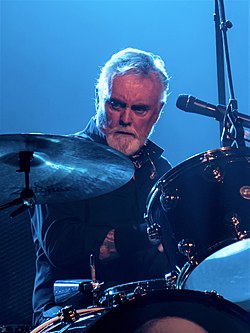
Cornish surnames are an incredibly intriguing subgroup of British Isles onomastics, with roots in the Cornish language, a Brythonic Celtic tongue closely related to Welsh and Breton, and layers of influence from Old English, Norman French, and English administrative history.
Until recently, Cornwall was very isolated, which contributed to the preservation of many distinctive toponymic, occupational, and descriptive surnames. Tre- (“homestead”), Pol- (“pool”), Pen- (“head, hill”), Ros- (“moor”), and Lan- (“church”) are only a few examples of names that are derived directly from the terrain, nature, and Celtic personal names. In recent years, interest in surname etymology has increased as a result of the resurgence of the Cornish language and culture.
History of Cornish surnamesHistory of Cornish surnames
Cornish surnames were not used until the Middle Ages and were not generally fixed until about 1600. At first they were used to help keep track of those with common given names. With the growing church and civil bureaucracy, names related to one's home or farm, one's father, one's job, or a personal characteristic became attached to a person and were passed to one's children. There are also a few names, like Bowden/Bawden from Baudouin/Baudin/Boudin, which may have been taken from the Norman French conquerors of 1066 as well as English names that made their way west to Cornwall. Long before Cornish surnames became inherited, they frequently served as place indicators, such as in Tre- fields or Pol- pools.
Cornish surnames naming conventionsCornish surnames naming conventions

Cornish surnames are derived from a number of sources. Many are from patronymics, taken from one's father's (and occasionally one's mother's) given name. These names aren't as easy to spot as one might imagine as they are not as straight forward as, say, a Scandinavian Knutson or Svenson. Many of the Cornish patronymics take the “root” given name and give it a twist, such as Robert is the origin of Hob or Dob prefixes, Roger morphs into Hodge and Dodge, Kitto is from Christopher, and Sandow derives from Alexander. To sort out the names associated with jobs, one has to do a little research and learn some Cornish. Angove is the Cornish word for a blacksmith, Tyack, a farmer, and Tremethyk, a homestead where a doctor lives. Other names were derived from personal characteristics of the original holder of the name such as Coad, old, or Gwyn, white.
Particularly during the Middle Ages, when farming communities and monastic foundations were called and passed down, many Cornish surnames have Christian and Celtic origins.
There are a few prefixes that make Cornish surnames easily identifieable. The oft recited: “By tre, pol, and pen, ye shall know all Cornishmen” or the later variation, “By your tre, ros, pol, and pen, ye shall know most Cornishmen,” covers many, but not all Cornish surnames. The names that begin with these prefixes borrow directly from the Cornish language and represent:
- Tre: An abbreviation of treveth, meaning a farm or homestead. Examples: Tremain, Trelawnny, Trevelyan, Treglown, Trevithick, and dozens more
- Ros: A prefix denoting higher ground, either a moor or a headland that juts into the water Examples: Rosewarne, Roskilly, Roseveare(spelled several ways), Rosdew, Rosemergy, etc.
- Pol: A pool, pit, or perhaps originally, also a cove. Examples: Poldark, Polkinhorne Polglase, Pollard, Polwhele, Polwin, etc.
- Pen: An end of something. Examples: Penrose, Penhaligon, Pendarvis, Penhallow, Pengelly, Pentreath, etc.

In addition to the prefixes found in the rhyme, other common prefixes include:
- Lan, usually referring to a church, as in Landry, Lanfear, Lansallos, Lanyon, and Lander
- Bos/Bod, referring to a home, as is Boscawen, Boswarva, and Bosense
- Car, referring to a round fortification, including Carkeek, Carveth, Carlyon, and Cardew
- Chy/Che, also a house or cottage, as in Chenoweth, Chegwin, Chegwidden, and Chellew
- Nan, denoting a valley, as in Nance, Nancekivell, Nanscawen, Nankervis, and Nancarrow
The second part of these types of Cornish names also has a meaning, of course. So Treglown for example, becomes Homestead by the Hedged Pond and Chenoweth, a New House. For a surname beginning with Tre, it may be possible to find the site of the Cornish farm or homestead once owned or inhabited by the original bearers of the surname, as many of the place names remain today.
It is important to take into account that as the Cornish language was not standardized until 2008, there is no unified way to spell the same surname, which means that Treglohan can be Treglown, Tregloan, Treglawn, or Treglone. Sometimes two or more spellings for the same surname can appear on the same document. Siblings, parents, and cousins may be associated with names sporting variant spellings.
Types of Cornish surnamesTypes of Cornish surnames
Cornish surnames of toponymic originCornish surnames of toponymic origin
Many Cornish surnames derive from farmsteads, manors, or geographic features, often in the form of compound Celtic elements; compared to their English neighbors, Cornish surnames tend to have a stronger connection to the landscape than to occupation.
- Trelawny – Tre (homestead) + lawny (clearing): “homestead in the clearing”
- Penrose – Pen (head/hill) + ros (moor): “hill on the moor”
- Polkinghorne – Pol (pool) + personal name or location suffix
- Tregenza – “farm of Kenza”
- Trevelyan – “farm of Elyan”
- Penhaligon – “end of the willows”
- Roskelly – ros (moor) + kelly (grove): “moor grove”
- Trethewey – “farm of the thieves” or “windy farm”
- Pendarvis – “end of the river valley”
- Lanyon – from lan (church site) + yon: “sacred enclosure”
Cornish surnames of patronymic originCornish surnames of patronymic origin
Cornish surnames often reflect Celtic personal names, sometimes Latinized or Anglicized over time:
- Jenkin – “son of John” (via Jankin)
- Pascoe – from Pascha (Easter), Christian naming
- Curnow – “Cornishman” (ethnic designation)
- Teague – from Teg, “fair”
- Jago – from Iago (Cornish form of James)
- Andrewartha – “Andrew’s homestead”
- Trengove – “homestead of Govyn”
- Cleeve – “cliff” or “hill,” sometimes derived from landscape name
- Trebilcock – “Billycock’s farm” (humorous-sounding but real!)
- Tonkin – diminutive of Tony
Cornish surnames of occupational originCornish surnames of occupational origin

Though rarer in Cornwall than in other parts of England, some surnames do reflect professions—especially mining, farming, or religious work:
- Angove – “the Smith” (blacksmith)
- Merrifield – “pleasant field” (could also be descriptive)
- Nance – possibly from An-ans, “the valley” (topographic, but also associated with farming)
- Carpenter – shared with English surnames
- Bennett – from Benedictus, later a priestly or clerical surname
- Pryor – related to monastic office
- Farmer – self-explanatory, but rare in Cornish
- Hewett – from Hugh, but sometimes denotes a woodcutter
- Blight – from blyth, “cheerful,” possibly descriptive
- Chynoweth – “new house,” may indicate a newly founded farmstead
Cornish surnames of descriptive originCornish surnames of descriptive origin
Other surnames are taken from Cornish names of animals, plants, geographic descriptions, and other things found in nature:
- Towan – “sand dune” or “hillock”
- Kelynack – “holly grove”
- Boswell – “dweller at the stream” (bod = dwelling, wel = stream)
- Coad – from Cornish codh, “wood”
- Penwarden – “hill of the thickets”
- Treliving – “farm of the elm trees”
- Rosewarne – “moor of thorns”
- Polwhele – “pool of the wheel” or possibly mill
- Carnes – from carn, “rocky hill or cairn”
- Truscott – “farm of the elder wood”
Cornish surnames of aristocratic originCornish surnames of aristocratic origin
These surnames are found in medieval Cornish records, often tied to land ownership, clerical roles, or Cornish gentry:
- Killigrew – noble family of Penryn and Falmouth
- Arundell – prominent Cornish aristocracy
- Boscawen – noble lineage from Tregothnan
- Reskymer – ancient landed family
- Godolphin – associated with the 17th-century politician Sidney Godolphin
- Tremayne – landowners in central Cornwall
- Chynoweth – recorded from at least the 14th century
- Bevill – old family from north Cornwall
- Bodrugan – medieval landowners near St Austell
- Carew – part of the Cornish-Welsh marcher families
Cornish surnames of foreign originCornish surnames of foreign origin
Some surnames came to Cornwall from Norman, Breton, or later English influence but localized over time:
- Hocking – possibly Norman/Breton in origin
- Penhale – “end of the marsh,” Anglo-Cornish hybrid
- Trevorrah – possibly “homestead of the foreigners”
- Pendarvis – originally a Breton-Cornish fusion
- Tredinnick – “farm of the fortress”
- Langmaid – Norman/French fusion, likely clerical
- Colenso – Huguenot lineage settled in Cornwall
- Renowden – possible Norman religious name
- Jelbert – Breton-Cornish hybrid, common in west Cornwall
- Sloggett – of uncertain origin; West Country-specific
Most common Cornish surnamesMost common Cornish surnames
Celebrities with Cornish surnamesCelebrities with Cornish surnames

- Mick Fleetwood - British musician, songwriter and actor. He is the drummer, co-founder, and leader of the rock band Fleetwood Mac.
- Thandie Newton - British actress of mixed Cornish-Zimbabwean ancestry. She has received various awards, including a Primetime Emmy Award, and a BAFTA Award, as well as nominations for two Golden Globe Awards
- Roger Taylor - English musician, songwriter and record producer. He achieved international fame as the drummer and backing vocalist for the rock band Queen
- Warren Tredea - former Australian Rules Footballer with the Port Adelaide Football Club in the Australian Football League (AFL) and former weekday sports presenter on Nine News Adelaide
- Kristin Chenoweth - American actress and singer. In 1999, she won a Tony Award for Best Featured Actress in a Musical for her performance as Sally Brown in You're a Good Man, Charlie Brown on Broadway. In 2003, Chenoweth was nominated for a second Tony Award for originating the role of Glinda in the musical Wicked. Her television roles include Annabeth Schott in NBC's The West Wing and Olive Snook on the comedy drama Pushing Daisies, for which she won an Emmy Award in 2009.
- John Rhys-Davies - Welsh actor known for portraying Gimli in The Lord of the Rings trilogy and Sallah in the Indiana Jones franchise. He has received three Screen Actors Guild Award nominations, with one win, and a Primetime Emmy Award nomination.
- Morwenna Banks - British actress, comedian, writer, and producer. She appeared in the Channel 4 comedy sketch show Absolutely, and wrote, produced, and appeared in the British ensemble film The Announcement. She voices Mummy Pig, Madame Gazelle and Dr Hamster in the children's series Peppa Pig.
See alsoSee also
- Anglo-Saxon surnames
- Irish surnames
- Cornwall
- British surnames
- Scottish surnames
- Welsh surnames
- Breton surnames
- Portuguese surnames
- Sephardic Jewish surnames
- Latvian surnames
- Lithuanian surnames
- Ashkenazi Jewish surnames
- Manx surnames
- Alsatian surnames
- Indian surnames
- Silesian surnames
- Viking surnames
- Canadian surnames
- New Zealand surnames
- American surnames
- French surnames
- Dutch surnames
Explore more about Cornish surnamesExplore more about Cornish surnames
- Discover the origin of your surname at MyHeritage
- Search historical records from Cornwall at MyHeritage
- Cornish surnames
- Cornish surnames: How to tell if you have Cornish ancestry
- Surname maps – 1861. Cornish studies resources
- A Handbook of Cornish Surnames. G. Pawley White. Dyllanso Truran, 1981. ISBN: 978-0950643199
- The Surnames of Cornwall. Bernard Deacon. CoSERG, 2019. ISBN: 978-0951391853
- The Cornish Family. Bernard Deacon. Cornwall Editions Limited, 2004. ISBN 978-1904880011
- Patronymica Cornu-Brittanica: Or, the Etymology of Cornish Surnames. Richard Steven Charnock. Kessinger Publishing, 2009. ISBN: 978-1104273682
- The Cornwall Family: A Reference Work for Genealogists. Ryan P. Jordan. CreateSpace Independent Publishing Platform, 2016. ISBN: 978-1534884946
References
- ↑ Cornwall’s top surnames: the list continues. Cornish studies resources

